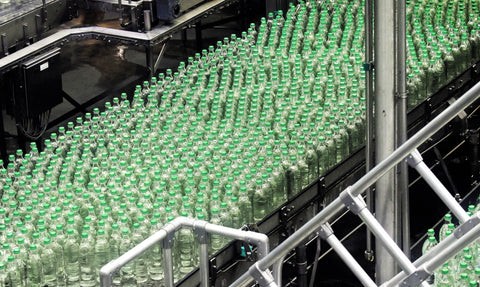
The term ‘greenwashing’ refers to marketing and communication aimed to convince consumers that a brand has environmentally-friendly credentials when they may not. Whilst there may be an element of truth behind some claims, benefits can be over-stated. As a consumer it is very difficult to understand a company's practices and ingredients.
Imagery, language, green-coloured packaging or even false claims can all be used in an attempt to increase market share in a world where consumers are becoming increasingly informed about toxic ingredients and their negative impacts on the planet.
Different to ‘green marketing’, where information is conveyed in an honest, accurate and transparent way, ‘greenwashing’ is misleading, deceitful and can be catastrophic to a brand’s reputation if they are caught out. Characterised by vague statements and ambiguous terminology, evocative imagery that embellishes the truth, or hypocrisies where statements aren’t supported by actions, ‘greenwashing’ undermines consumer confidence and the positive work of socially- responsible businesses that are working towards a better future.
Products marketed as ‘eco’, ‘organic’ or ‘natural’ can still include ingredients that cause adverse effects so it’s 'buyer beware' when purchasing any product with sustainability, health or environmental claims.
There are a couple of quick 'tricks' that we use to assess the natural credentials of a brand. One is by looking at the percent of naturally derived ingredients in a product (WASH WILD is 99%+ naturally-derived). The other is by learning the names of a few of the nastiest ingredients - which are typically the preservatives. Watch for methisothiazolinone and methylparabens in particular. We also don't use phenoxyethanol, however this is not quite as bad as the others in terms of potential impact on human health and the environment. Some of the most natural brands also choose essential oils rather than 'fragrance' or 'parfum'.
At WASH WILD, we care very careful to not make claims we can't support, operating with transparent and ethical practices. We list ingredients used and avoid those we consider unsafe for human health or damaging to the planet:

Image source Sunday Riley


